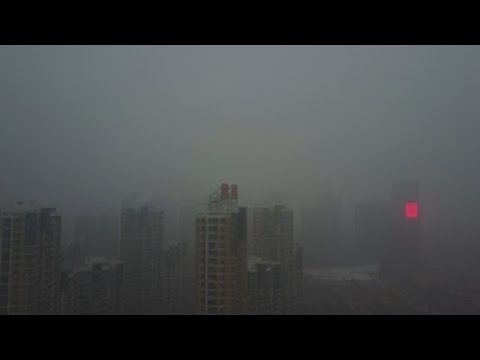
Beijing Meets Air Quality Improvement Goals With Crackdown on Polluters

Beijing successfully lowered air pollution levels following a crackdown on polluters last year, bringing China’s capital in line with air quality targets, according to Chinese officials.
The announcement Wednesday by the Beijing Municipal Environmental Protection Bureau followed a 2013 plan that ordered the city to reduce the yearly average concentration of particulate matter to less than 60 micrograms. According to the bureau, the capital succeeded by reducing PM2.5 concentrations to 58 micrograms per cubic meter—a reduction of 35.6 percent from 2012.
Reuters reported that the figures provided by the government agency were in line with the news agency’s own estimates.
Despite meeting the target, northern China is still a ways off its official PM2.5 of 35 micrograms per cubic meter and even further off the maximum of 10 micrograms per cubic meter recommended by the World Health Organization.
“Current air pollutant levels remain a lot higher than the national air quality standard, indicating the improvement in air quality will still be a long-term process,” Beijing’s environment agency said.
PM2.5 is particulate matter with a length of 2.5 microns or less. Often a mix of chemicals, the microscopic cocktail of toxins from power plants, automobiles and other sources of industry harm human lungs and can cause heart problems if they enter the bloodstream.
Brought about in 2013 by public anger over frequently hazardous air pollution levels, the initiative received a late push from the government in October to ensure 2017 targets were met. The push included 27 other northern Chinese cities.
To reduce air pollution, Beijing closed nearly 2000 factories in the cement, foundry and furniture sectors and shut down coal power plants in the past five years. The city also took nearly 2 million high-emission vehicles off the road.
In north China’s drive to switch to residential winter heating systems, it began phasing out coal-powered boilers to switch to gas or electric-powered equipment. It also shut down or curbed production at heavy industrial plants.
The government partly attributed the air quality improvement to drier and windier weather.
Wednesday’s announcement came just two days after China announced it would suspend the production of hundreds of car models to curb air pollution.

 233k
233k  41k
41k  Subscribe
Subscribe 